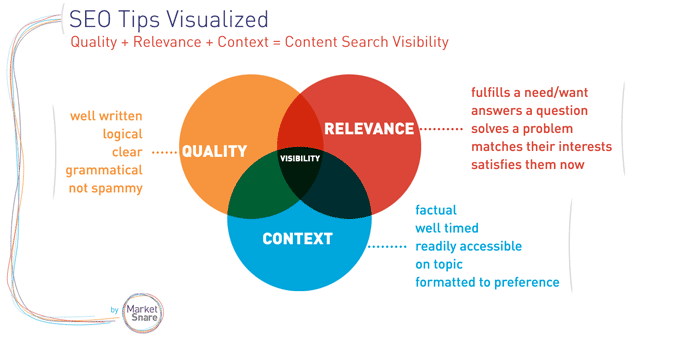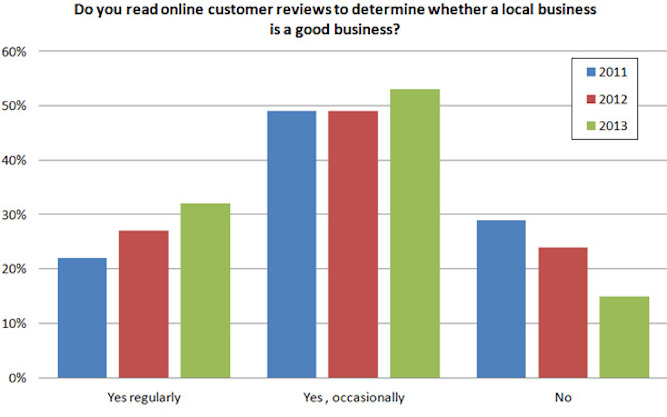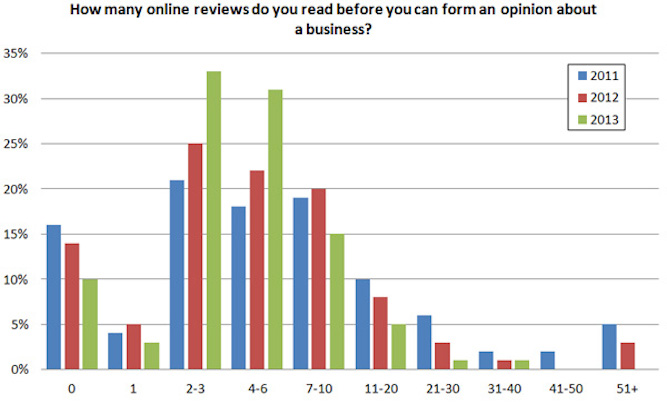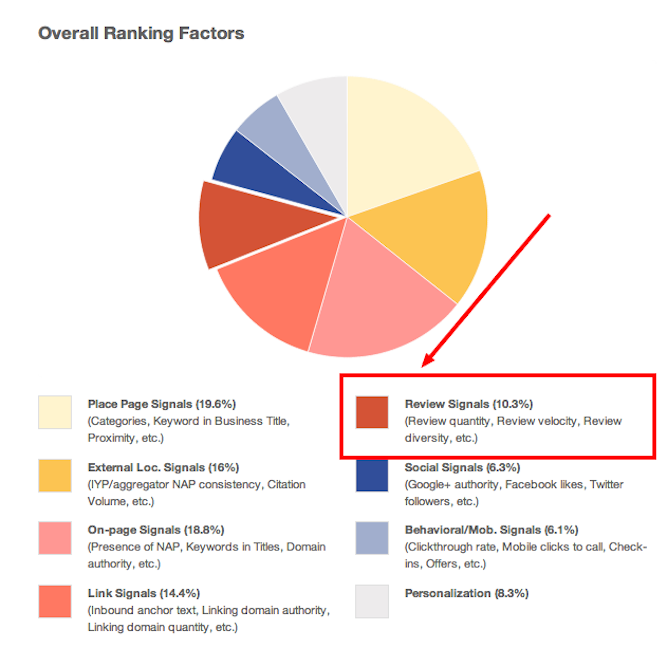Content Relevance is used to point out how relevant a website is in relation to a particular search topic or term. Topic relevance is of absolute importance for SEO. The better the content of a page matches a search query, the more likely it will achieve a good ranking.
I guess that you’d would stand up and either pat yourself on the back if your business has a strategy already in place for getting reviews and managing your online reputation.
Online reviews are important for a number of reasons, and have significance through their ability to affect:
- Your rankings in search engines
- Which search results actually gets clicked on
- Consumers purchasing decisions
This means reviews online as critical to your SEO as building reference and on-site optimisation.
How Do Consumers Use Online Reviews?
Before I get started about data surrounding and how online reviews are used by consumers and how it impacts their decision, it’s vital to consider where it all fits into the purchasing cycle for services and products.
Usually, by the time someone has started looking at a review, they’ve already know their needs/wants, how a business might fulfill that need/want and are now are ready to select a business.
The important thing to now is that the mental gap between reading a review and making a decision to purchase from a business is very small, and results in a yes/no decision almost straight away. So as a small business, your reputation online can directly influence your business.
But, how many people actually read reviews? According to a survey conducted by BrightLocal, roughly 83% of consumers reported reading online reviews.
But, how many reviews do potential customers they read before making up their minds? The survey also has an answer to that. About 65% of consumers will read 6 reviews or less before they form an opinion about a given business.
Meanwhile, another survey conducted by Dimensional Research found that 90% of their respondents claimed that positive online reviews influenced their buying decisions, while 86% had responded saying that negative reviews impacted their decisions.
Hopefully this helps you understand at least from a customer’s perspective how important online reviews are in helping push their purchasing decisions.
Why Reviews Matter For SEO
All search engines love online reviews for one reason, customers love online reviews. They are in business of providing consumers on the go or at home with the most accurate information to help them make decisions around their purchases. The faster you do that, the more customers will turn to them time and time again. Have a look at the below screenshot of results from Yelp for the keywords “boutique fashion Toronto.”
According to MOZ’s Local Search Ranking Factors Survey, reviews make up 10% of how Google decide to rank search results. Here’s chart they provide to break down the different parables:
Preparing a Review Strategy
Before you start on creating a review strategy that works for your business, it’s a good idea to have some thoughts on which review platforms would work best for you’re business.
To figure out that, start by going to Google and doing the following search, “[Industry] + reviews” and see which sites pop-up on the first page. For example, have a look at what shows up for “shoe store reviews”:
Something else you can do is click over the leading search results and you will see two arrows pop-up that help you to open up what Google refers to as the “Knowledge Panel” for that business and look at the sites listed under “more reviews.”
Something else to keep in mind before we show how you can obtain more reviews is understanding the different review policies all platforms have that you should stand by. For e.g. Yelp forbids any small businesses from approaching online reviews and will act quickly if it detects something off. Meanwhile, other platforms don’t really have any issues with businesses making the ask.
Here are some review guidelines for some of the most critical review platforms:
Once you’ve had a look through, here are some hints and tips to help you start:
- Use this “Review Handout Generator” by Whitespark and Phil Rozek that helps you create handouts for clients to give clear instructions on how they could leave you a review on Google.
- Link to your review profiles from your website.
- Create a Google+ page and invite customers to leave a short positive review.
- Create print or digital materials that list all the different sites customers can review you’re business.
- Request a “Find Us on Yelp,” if you haven’t gotten their “People Love Us On Yelp” sticker.
We hope this has helped a little in understanding the importance of online reviews.









